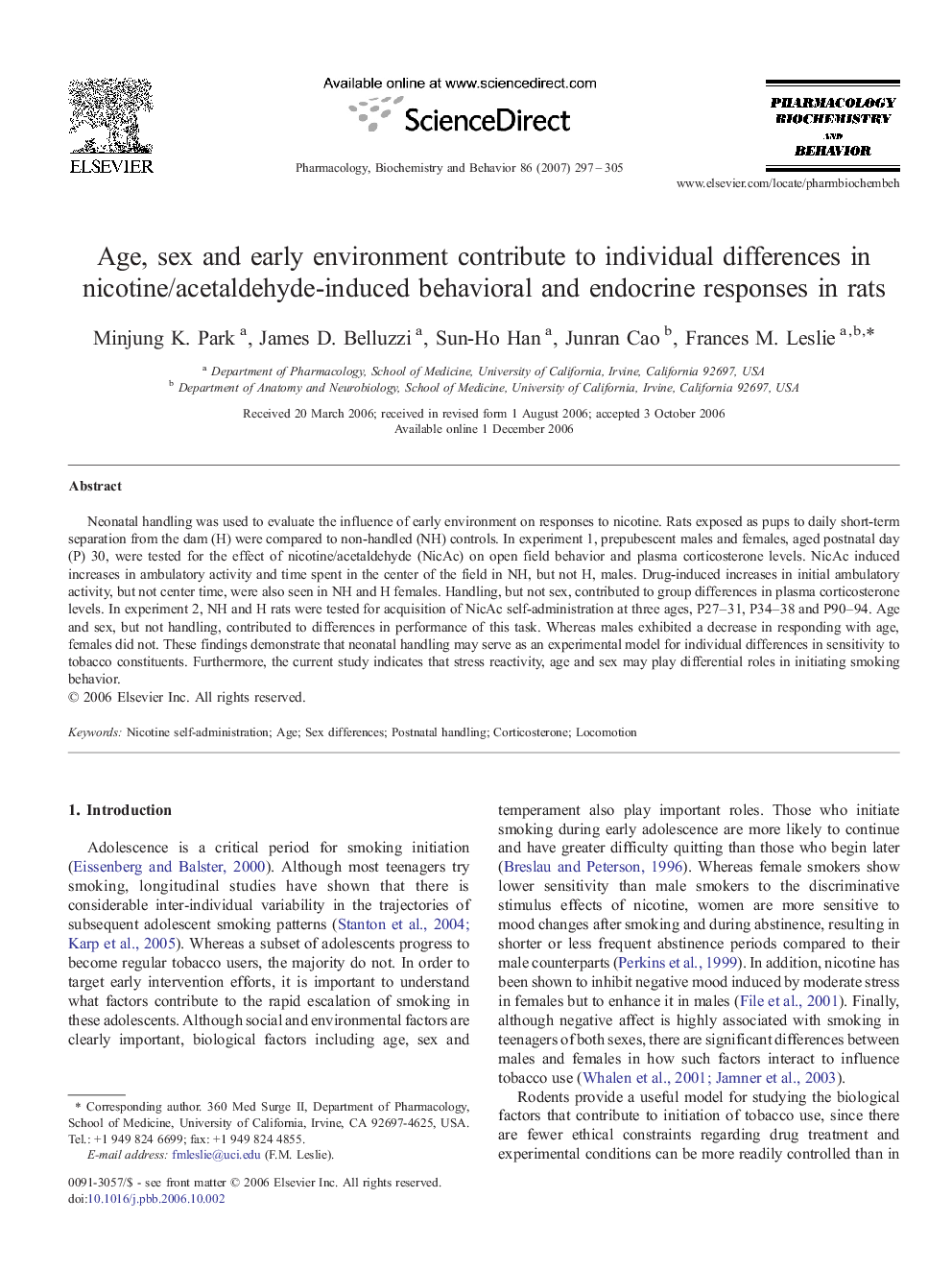| Article ID | Journal | Published Year | Pages | File Type |
|---|---|---|---|---|
| 2014444 | Pharmacology Biochemistry and Behavior | 2007 | 9 Pages |
Neonatal handling was used to evaluate the influence of early environment on responses to nicotine. Rats exposed as pups to daily short-term separation from the dam (H) were compared to non-handled (NH) controls. In experiment 1, prepubescent males and females, aged postnatal day (P) 30, were tested for the effect of nicotine/acetaldehyde (NicAc) on open field behavior and plasma corticosterone levels. NicAc induced increases in ambulatory activity and time spent in the center of the field in NH, but not H, males. Drug-induced increases in initial ambulatory activity, but not center time, were also seen in NH and H females. Handling, but not sex, contributed to group differences in plasma corticosterone levels. In experiment 2, NH and H rats were tested for acquisition of NicAc self-administration at three ages, P27–31, P34–38 and P90–94. Age and sex, but not handling, contributed to differences in performance of this task. Whereas males exhibited a decrease in responding with age, females did not. These findings demonstrate that neonatal handling may serve as an experimental model for individual differences in sensitivity to tobacco constituents. Furthermore, the current study indicates that stress reactivity, age and sex may play differential roles in initiating smoking behavior.
